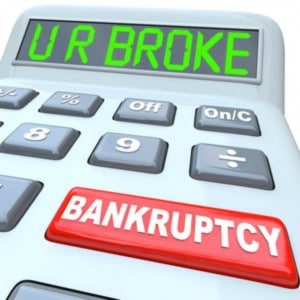Previous blogs for the company went bankrupt
The issue of the company went bankrupt and didn’t pay me wages is not a new one. We previously wrote two blogs on this topic:
- WHAT HAPPENS IF MY EMPLOYER OWES ME MONEY & GOES BANKRUPT?
- OWED WAGES BY EMPLOYER? FIND OUT IF YOU QUALIFY TO GET PAID
We have noticed a surge of renewed interest in this topic based on recent activity from readers of our Brandon’s Blog, so, we thought it would be a good idea to put together a short video on this topic.
People ask us what if the company didn’t pay me wages?
We answer if wages are owed by your employer because the employer went bankrupt with unpaid employees or is in receivership don’t despair; there is hope for you to recuperate monies owed to you. The Wage Earner Protection Program (“WEPP”) Act – WEPPA – in conjunction with an amendment to the Bankruptcy and Insolvency Act (Canada) – BIA – created a mechanism for employees to be compensated for claims of unpaid wages, commissions and vacation pay accrued in the six months preceding the employer files for bankruptcy or being placed in receivership and wages are owed to you along with claims for unpaid termination and/or severance pay.
Are there any exceptions? What are the rules?
There are a few exceptions to the company went bankrupt and didn’t pay me wages. You are generally not eligible if, during the period for which your wages are owed to you by your employer, you:
- were an officer or a director of your former employer
- had a controlling interest in the business of your former employer
- were a manager whose responsibilities included making binding financial decisions impacting the business of your former employer, and/or making binding decisions on the payment or non-payment of wages by your former employer
Who is eligible for the WEPP? You may apply if wages are owed to you by your employer and:
- your former employer has filed for bankruptcy or is subject to a receivership
- wages are owed to you by your employer, vacation pay, termination or severance pay from your former employer
- amounts earned during the eligibility period or, in the case of termination or severance pay, your employment was terminated during the eligibility period ending on the date of bankruptcy or receivership
One more very important exception – it only applies if wages are owed to you by your employer and your employer is in either receivership or bankruptcy and owes you wages. If your employer is attempting a corporate restructuring under a Notice of Intention to Make a Proposal, a Division I Proposal or the Companies’ Creditors Arrangement Act, then WEPPA and its provisions do not come into play.
Claim limits when the company went bankrupt and didn’t pay me wages
Regardless of the total amount owing to you, the maximum any employee can receive under WEPPA is the greater of $3,200 or four times the maximum weekly insurable earnings under the Employment Insurance Act (which is now around $3,900).
Once employees file claims with both the Trustee/Receiver and Service Canada, Service Canada pays their claims for owed wages by the employer and Service Canada becomes the creditor. The amendment to the BIA has recognized WEPPA and created a priority charge that supersedes all secured charges except CRA’s deemed trust claim (and the reclaiming rights of farmers and suppliers) to a max of $2,000 per employee, secured against current assets.
Documentation needed if the company went bankrupt and didn’t pay me wages
While no one wants – or expects – to be part of a receivership or bankruptcy, you should always keep detailed records of hours worked for any pay period. On any occasion when you discover there will be no paycheque, record the loss that you will suffer, such as not being able to pay bills or buy groceries. Ask for a formal explanation from your employer and keep detailed notes on your efforts. It’s important to prove that when owed wages by an employer; you still expect to be paid, even if it’s late.
If your employer is in receivership or bankruptcy proceedings, and you believe you have a claim for owed wages by the employer, find the trustee and get in touch with Service Canada. Have your records ready and make sure you get your Proof of Claim.
What should I do if I have too much debt and the company went bankrupt and didn’t pay me wages?
This is an important issue. If you are experiencing financial problems, contact Ira Smith Trustee & Receiver Inc. We’re here to find what your bankruptcy options are, put your financial house back in order and set you on a path to debt free-living. You’ll be amazed at the difference one phone call to Ira Smith Trustee & Receiver Inc. can make.
Contact us today. We are a licensed trustee and will listen to your issues and offer compassionate, professional assistance to aid you to avoid bankruptcy, so that you can regain control of your life, Starting Over, Starting Now.
THIS VLOG WAS INSPIRED IN PART BY OUR eBOOK – PERSONAL BANKRUPTCY CANADA: Not because you are a dummy, because you need to get your life back on track






